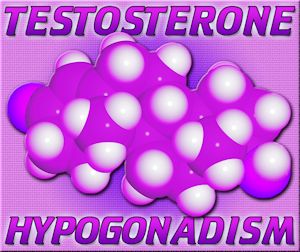Introduction to Prostate Health
Prostate health is a critical concern for American males, particularly as they age. The prostate, a small gland that plays a crucial role in the male reproductive system, can be affected by various conditions such as benign prostatic hyperplasia (BPH), prostatitis, and prostate cancer. Maintaining prostate health is essential for overall well-being and quality of life. Recent research has begun to explore the benefits of natural supplements, with turmeric emerging as a promising candidate for supporting prostate health.
Understanding Turmeric and Its Active Compounds
Turmeric, derived from the root of the Curcuma longa plant, has been a staple in traditional medicine for centuries, particularly in Ayurvedic practices. The key active compound in turmeric is curcumin, which is known for its potent anti-inflammatory and antioxidant properties. These properties make curcumin a subject of interest in the field of prostate health, where inflammation and oxidative stress are significant concerns.
Turmeric's Anti-Inflammatory Effects on the Prostate
Chronic inflammation is a known risk factor for the development of prostate diseases. Studies have shown that curcumin can effectively reduce inflammation by inhibiting inflammatory pathways and reducing the production of pro-inflammatory cytokines. For American males, incorporating turmeric into their diet could potentially mitigate the risk of developing inflammatory conditions such as prostatitis and BPH.
Antioxidant Properties and Prostate Cancer Prevention
Oxidative stress, caused by an imbalance of free radicals and antioxidants in the body, is another factor linked to prostate cancer. Curcumin's strong antioxidant capabilities help neutralize free radicals, potentially reducing the risk of cellular damage that can lead to cancer. Research, including studies conducted on American male populations, suggests that regular consumption of turmeric may contribute to a lower incidence of prostate cancer.
Clinical Evidence Supporting Turmeric's Role in Prostate Health
Several clinical studies have investigated the effects of turmeric on prostate health. A notable study published in the journal "Prostate" found that curcumin supplementation significantly reduced prostate-specific antigen (PSA) levels in men with prostate cancer. PSA is a marker used to monitor prostate health and cancer progression. Additionally, other studies have reported improvements in symptoms of BPH among men who consumed turmeric regularly.
Incorporating Turmeric into the American Male Diet
For American males looking to enhance their prostate health, integrating turmeric into their diet can be both practical and beneficial. Turmeric can be added to a variety of dishes, from curries to smoothies, and is available in supplement form for those who prefer a more concentrated dose of curcumin. It is important, however, to consult with a healthcare provider before starting any new supplement regimen, especially for individuals with existing health conditions or those taking other medications.
Potential Side Effects and Considerations
While turmeric is generally considered safe, it can cause gastrointestinal issues in some individuals, particularly when consumed in large amounts. Additionally, turmeric may interact with certain medications, such as blood thinners. American males should be aware of these potential side effects and discuss any concerns with their healthcare provider.
Conclusion: The Future of Turmeric in Prostate Health
The potential benefits of turmeric for prostate health are promising, supported by a growing body of research. For American males, turmeric offers a natural and accessible means of supporting prostate health and potentially reducing the risk of prostate-related diseases. As research continues to evolve, turmeric may become an integral part of preventive health strategies for prostate care.
Contact Us Today For A Free Consultation

- Prostate Health in Aging American Men: BPH, Cancer, and Lifestyle Management [Last Updated On: March 1st, 2025] [Originally Added On: March 1st, 2025]
- Prostate Health Essentials: Risks, Prevention, and Screening for American Men [Last Updated On: March 17th, 2025] [Originally Added On: March 17th, 2025]
- Understanding Benign Prostatic Hyperplasia: Symptoms, Diagnosis, and Management in American Men [Last Updated On: March 18th, 2025] [Originally Added On: March 18th, 2025]
- Prostate Health and Cancer: The Crucial Role of Family History in American Men [Last Updated On: March 19th, 2025] [Originally Added On: March 19th, 2025]
- Exercise Regimen for Optimal Prostate Health in American Men [Last Updated On: March 19th, 2025] [Originally Added On: March 19th, 2025]
- Navigating Life After Prostate Cancer: Health, Well-being, and Survivorship Strategies [Last Updated On: March 19th, 2025] [Originally Added On: March 19th, 2025]
- Dietary Strategies for Enhancing Prostate Health in American Men [Last Updated On: March 19th, 2025] [Originally Added On: March 19th, 2025]
- Prostate Cancer Screening: Controversies, Guidelines, and Future Directions [Last Updated On: March 21st, 2025] [Originally Added On: March 21st, 2025]
- Prostate Cancer Treatments: Understanding and Managing Side Effects for American Men [Last Updated On: March 21st, 2025] [Originally Added On: March 21st, 2025]
- Exercise as a Key to Prostate Health for American Males: Benefits and Recommendations [Last Updated On: March 21st, 2025] [Originally Added On: March 21st, 2025]
- Prostate Health and Heart Disease: Understanding the Connection and Risks for American Men [Last Updated On: March 21st, 2025] [Originally Added On: March 21st, 2025]
- Prostate Cancer's Psychological Impact on American Men: Diagnosis to Recovery [Last Updated On: March 21st, 2025] [Originally Added On: March 21st, 2025]
- Prostate Health: Understanding Symptoms, Seeking Care, and Maintaining Wellness in American Men [Last Updated On: March 22nd, 2025] [Originally Added On: March 22nd, 2025]
- Prostate Cancer Stages and Grades: A Comprehensive Guide for American Men [Last Updated On: March 22nd, 2025] [Originally Added On: March 22nd, 2025]
- Vitamin D's Role in Prostate Health: Insights and Recommendations for American Men [Last Updated On: March 22nd, 2025] [Originally Added On: March 22nd, 2025]
- Environmental Factors and Prostate Health: Risks and Mitigation Strategies for American Males [Last Updated On: March 22nd, 2025] [Originally Added On: March 22nd, 2025]
- Hydration's Vital Role in Prostate Health for American Males [Last Updated On: March 23rd, 2025] [Originally Added On: March 23rd, 2025]
- Avoid These Foods for Better Prostate Health in American Men [Last Updated On: March 23rd, 2025] [Originally Added On: March 23rd, 2025]
- Palliative Care's Vital Role in Enhancing Prostate Cancer Management and Quality of Life [Last Updated On: March 23rd, 2025] [Originally Added On: March 23rd, 2025]
- Chemotherapy's Role in Managing Prostate Cancer: Efficacy and Quality of Life in American Men [Last Updated On: March 24th, 2025] [Originally Added On: March 24th, 2025]
- Active Surveillance: A Tailored Approach to Managing Low-Risk Prostate Cancer [Last Updated On: March 24th, 2025] [Originally Added On: March 24th, 2025]
- Prostate Cancer and Cryotherapy: Benefits, Risks, and Management for American Men [Last Updated On: March 24th, 2025] [Originally Added On: March 24th, 2025]
- Prostate Cancer's Impact on Fertility: Treatments and Preservation Options [Last Updated On: March 24th, 2025] [Originally Added On: March 24th, 2025]
- Prostate Cancer and Radiation Therapy: Efficacy, Side Effects, and Future Advances [Last Updated On: March 24th, 2025] [Originally Added On: March 24th, 2025]
- HIFU: A Minimally Invasive Hope for Prostate Cancer Treatment [Last Updated On: March 24th, 2025] [Originally Added On: March 24th, 2025]
- Prostate Cancer Treatment: Understanding Brachytherapy's Benefits and Procedure [Last Updated On: March 24th, 2025] [Originally Added On: March 24th, 2025]
- Sleep's Crucial Role in Prostate Health for American Men [Last Updated On: March 25th, 2025] [Originally Added On: March 25th, 2025]
- Prostate Cancer Support Groups: Emotional, Educational, and Practical Benefits for Men [Last Updated On: March 25th, 2025] [Originally Added On: March 25th, 2025]
- Immunotherapy: A Promising Frontier in Prostate Cancer Treatment for American Men [Last Updated On: March 25th, 2025] [Originally Added On: March 25th, 2025]
- Omega-3 Fatty Acids: A Promising Approach to Prostate Health in American Males [Last Updated On: March 25th, 2025] [Originally Added On: March 25th, 2025]
- CyberKnife: Advanced, Non-Invasive Prostate Cancer Treatment for American Men [Last Updated On: March 25th, 2025] [Originally Added On: March 25th, 2025]
- Alcohol Consumption and Prostate Health: Insights and Recommendations for American Men [Last Updated On: March 25th, 2025] [Originally Added On: March 25th, 2025]
- Proton Therapy: A Targeted Approach to Treating Prostate Cancer in American Men [Last Updated On: March 25th, 2025] [Originally Added On: March 25th, 2025]
- Targeted Therapy: Revolutionizing Prostate Cancer Treatment for American Men [Last Updated On: March 25th, 2025] [Originally Added On: March 25th, 2025]
- Stress Impact on Prostate Health: Management Strategies for American Men [Last Updated On: March 25th, 2025] [Originally Added On: March 25th, 2025]
- Heavy Metals and Prostate Health: Risks and Prevention Strategies for American Males [Last Updated On: March 25th, 2025] [Originally Added On: March 25th, 2025]
- Photodynamic Therapy: A Promising Treatment for Prostate Cancer in American Men [Last Updated On: March 25th, 2025] [Originally Added On: March 25th, 2025]
- Hormone Therapy: Managing Prostate Cancer and Enhancing Life Quality [Last Updated On: March 25th, 2025] [Originally Added On: March 25th, 2025]
- Pesticides and Prostate Health: Risks, Mechanisms, and Prevention for American Males [Last Updated On: March 26th, 2025] [Originally Added On: March 26th, 2025]
- Green Tea Benefits for Prostate Health in American Males [Last Updated On: March 26th, 2025] [Originally Added On: March 26th, 2025]
- Antioxidants: Key to Prostate Health and Disease Prevention in American Males [Last Updated On: March 26th, 2025] [Originally Added On: March 26th, 2025]
- Selenium's Role in Prostate Health: Benefits and Optimal Intake for American Males [Last Updated On: March 26th, 2025] [Originally Added On: March 26th, 2025]
- Air Pollution's Emerging Link to Prostate Health Issues in American Males [Last Updated On: March 27th, 2025] [Originally Added On: March 27th, 2025]
- Lycopene's Role in Enhancing Prostate Health: Benefits and Dietary Sources [Last Updated On: March 27th, 2025] [Originally Added On: March 27th, 2025]
- Prostate Cancer Management: Understanding Watchful Waiting and Its Benefits [Last Updated On: March 27th, 2025] [Originally Added On: March 27th, 2025]
- Prostate and Bone Health: Understanding the Connection and Management Strategies [Last Updated On: March 27th, 2025] [Originally Added On: March 27th, 2025]
- Zinc's Vital Role in Prostate Health for American Males [Last Updated On: March 27th, 2025] [Originally Added On: March 27th, 2025]
- Plastics and Prostate Health: Risks, Research, and Mitigation Strategies for American Males [Last Updated On: March 28th, 2025] [Originally Added On: March 28th, 2025]
- Chronic Inflammation's Impact on Prostate Health in American Males: Risks and Management [Last Updated On: March 28th, 2025] [Originally Added On: March 28th, 2025]
- Chemoprevention Strategies for Prostate Cancer: Agents and Clinical Insights [Last Updated On: March 28th, 2025] [Originally Added On: March 28th, 2025]
- Prostate Cancer Surgery: Benefits, Risks, and Comprehensive Management for American Men [Last Updated On: March 29th, 2025] [Originally Added On: March 29th, 2025]
- EMFs and Prostate Health: Risks, Mechanisms, and Mitigation Strategies for American Males [Last Updated On: March 30th, 2025] [Originally Added On: March 30th, 2025]
- Vitamin E's Role in Prostate Health: Benefits and Considerations for American Males [Last Updated On: March 31st, 2025] [Originally Added On: March 31st, 2025]
- Robotic Surgery for Prostate Cancer: Benefits and Procedure for American Men [Last Updated On: April 2nd, 2025] [Originally Added On: April 2nd, 2025]
- Prostate Cancer: Focal Therapy's Role in Minimizing Side Effects for American Men [Last Updated On: April 3rd, 2025] [Originally Added On: April 3rd, 2025]
- Cruciferous Vegetables: A Dietary Approach to Enhancing Prostate Health in American Males [Last Updated On: April 5th, 2025] [Originally Added On: April 5th, 2025]
- Endocrine Disruptors and Prostate Health: Risks, Exposure, and Mitigation Strategies [Last Updated On: April 5th, 2025] [Originally Added On: April 5th, 2025]
- Industrial Chemicals and Prostate Health: Risks and Prevention Strategies [Last Updated On: April 5th, 2025] [Originally Added On: April 5th, 2025]
- Soy Benefits for Prostate Health: Reducing Cancer Risk and Managing BPH [Last Updated On: April 8th, 2025] [Originally Added On: April 8th, 2025]
- Laparoscopic Prostatectomy: Minimally Invasive Cancer Treatment and Recovery Insights [Last Updated On: April 8th, 2025] [Originally Added On: April 8th, 2025]
- Adjuvant Therapy's Role in Managing Prostate Cancer Among American Men [Last Updated On: April 8th, 2025] [Originally Added On: April 8th, 2025]
- Salvage Therapy: A Second Chance for American Men with Prostate Cancer Recurrence [Last Updated On: April 9th, 2025] [Originally Added On: April 9th, 2025]
- Neoadjuvant Therapy in Prostate Cancer: Insights for American Men's Health [Last Updated On: April 10th, 2025] [Originally Added On: April 10th, 2025]
- Medications and Prostate Health: Impacts, Monitoring, and Holistic Management for American Men [Last Updated On: April 10th, 2025] [Originally Added On: April 10th, 2025]
- Flaxseed: A Natural Approach to Enhancing Prostate Health in American Males [Last Updated On: April 11th, 2025] [Originally Added On: April 11th, 2025]
- Pomegranates: A Natural Approach to Enhancing Prostate Health in American Males [Last Updated On: April 12th, 2025] [Originally Added On: April 12th, 2025]
- Palliative Surgery for Prostate Cancer: Enhancing Quality of Life for American Men [Last Updated On: April 12th, 2025] [Originally Added On: April 12th, 2025]
- Bisphosphonates: Enhancing Bone Health in Metastatic Prostate Cancer Management [Last Updated On: April 13th, 2025] [Originally Added On: April 13th, 2025]
- Heavy Physical Work's Impact on Prostate Health in American Males [Last Updated On: April 16th, 2025] [Originally Added On: April 16th, 2025]
- Denosumab: A Promising Treatment for Prostate Cancer with Bone Metastases [Last Updated On: April 17th, 2025] [Originally Added On: April 17th, 2025]
- RANK Ligand Inhibitors: A New Hope in Managing Advanced Prostate Cancer [Last Updated On: April 18th, 2025] [Originally Added On: April 18th, 2025]
Word Count: 556





















